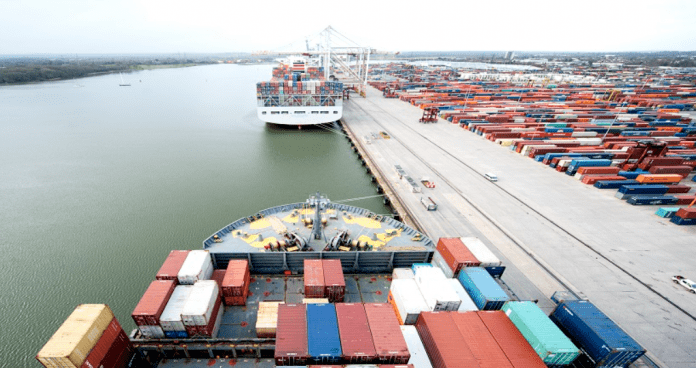National Grid Electricity Transmission (NGET) and Siemens have partnered to create a free online tool with the support and guidance from the British Ports Association (BPA) to help the ports of the United Kingdom (UK) meet their net-zero targets.
The decarbonisation tool is expected to help ports forecast the future infrastructure which is required to meet the potential increased demand for electricity from zero-emission port operations.
The maritime sector is responsible for 5% of UK transport emissions, with diesel fuel predominantly used to power vehicles and equipment, according to a statement.
It is estimated that between now and around 2050, the annual electricity demand across the ports could increase to around 250 Gigawatt hours (GWh) under a ‘business as usual’ scenario and to more than 4,000 GWh under an ambitious emission reduction scenario, according to a Summary Report for the Department for Transport.
“If ports are to meet their net-zero targets, the demand for clean energy will need to be increased and ports will likely need completely new connections for transmission,” noted National Grid in a statement.
NGET, the owner of the high-voltage electricity transmission network in England and Wales, will also need to invest in the network for the increased capacity which could include a range of upgrades to substations and circuits.
In the meantime, the UK ports have already begun to decarbonise with government modelling showing they can achieve net-zero through a transition to alternative fuel and the integration of ports into the decarbonised energy network.
It is hoped that the decarbonisation tool will accelerate the transition by modelling future peak demand for electricity and by giving an estimate of the connections required, both to the local distribution network and the national transmission system.
This can be achieved by asking questions about the assets a port has on site, such as the number of berths, the types of cranes, as well as the number of car parking spaces, in combination with estimations of the peak power demand for the site.
The tool is offered in two versions. The one version makes assessments based on the asset information input, while the other is customisable, allowing the port to change the assumptions if appropriate, according to a statement.
“With the support of the decarbonisation tool, UK ports can begin to plan their transition to alternative fuel-powered vessels using energy from low or zero-emission sources, as well as the integration of ports into the decarbonised energy network,” stated Mark Simmonds, Director of Policy & External Affairs, British Ports Association.
He also noted that the ports recognise the scale of the challenge in reducing emissions from their operations and from ships and the increasing electrification will play a major role in that.







